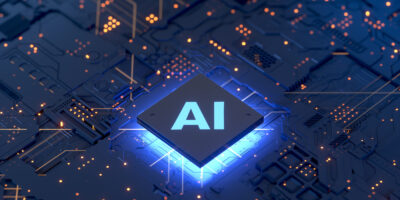Intel updates oneAPI tookits for cross-architecture capabilities
Enhanced oneAPI 2022 toolkits expand cross-architecture features to provide developers greater architectural choice to accelerate computing, says Intel.
New capabilities include what is claimed to be the world’s first unified compiler implementing C++, SYCL and Fortran, data parallel Python for CPUs and GPUs, advanced accelerator performance modelling and tuning, and performance acceleration for AI and ray tracing visualisation workloads.
The 2022 Intel oneAPI toolkits benefit from over 900 new and enhanced features, added over the course of this year. Included in the foundational and domain-specific toolkits are compilers, libraries, pre-optimised frameworks, analysers and debuggers.
One highlight is cross-architecture programming. Intel’s unified compiler implements C++, SYCL and Fortran for CPUs and GPUs utilising a common LLVM back end.
Another new feature is accelerated compute on CPUs and GPUs for the most popular programming language today, Python.
The Intel DPC++ compatibility tool has been improved to automatically migrate 90 to 95 per cent of CUDA code to SYCL/DPC++.
Intel oneAPI Toolkits are optimised to enable advanced features of the latest and upcoming new hardware, including 12th Gen Intel Core processors with AVX-VNNI, Next Gen Intel Xeon Scalable processors, codenamed Sapphire Rapids with Intel Advanced Matrix Extension (Intel AMX), and upcoming Xe client and data centre GPUs.
For AI, the deep learning framework performance has been accelerated up to 10 times over earlier versions with the latest Intel Optimization for TensorFlow and Intel Optimization for PyTorch.3
This edition also introduces the Intel Extension for Scikit-learn which speeds up machine learning algorithms more than 100 times on Intel CPUs over the stock open source version.
Another new feature is the Intel Neural Compressor which is designed to achieve increased inference performance through post-training optimisation techniques across multiple deep learning frameworks.
Advanced tools for development productivity include performance analysis for CPUs and accelerators. This includes Intel VTune Profiler’s flame graph display which helps improve the ability to visualise performance hot spots. Another tools is Intel Advisor’s accelerator performance modelling which allows developers to estimate performance benefits of offloading to a GPU before making code changes.
Advanced ray tracing has new features including cone telemetry, auxiliary feature denoising and FP16 support and there is also support future Intel Xe GPUs and real-time denoising to improve final frame, production-quality rendering.
Expanded development environment support includes deeper Microsoft Visual Studio Code integration, support for Microsoft Visual Studio 2022, and Microsoft WSL2 for Linux development on Windows.
Foundational and domain-specific toolkits are now available to download or use in the Intel DevCloud, free of charge.
The oneAPI cross-architecture programming model provides developers with tools to improve the productivity and velocity of code development when building cross-architecture applications.
An Evans Data survey reported that 40 per cent of developers target heterogeneous systems that use more than one type of processor, processor core or coprocessor. Developers can use oneAPI to choose the best hardware for a given solution without having to implement proprietary programming models, says Intel.




